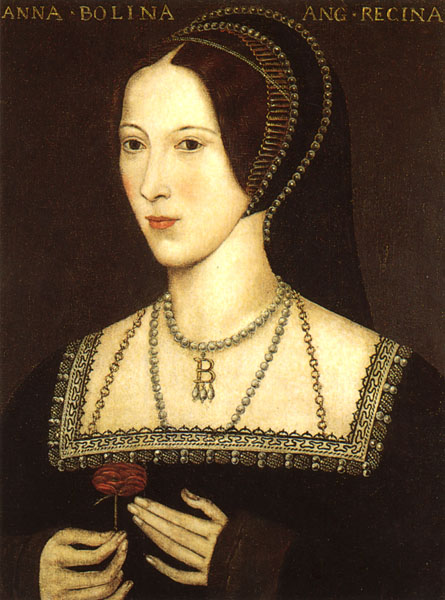The Lost Tragedy of Anne Boleyn January 28, 2015
Author: Beach Combing | in : Modern , trackbackAn entry in the burning libraries catalogue…
In 1536 Anne Boleyn was executed for sexual betrayal and for plotting the murder of the king, her husband Henry VIII. Beach has examined these extraordinary claims in another post, sufficient to say for now that there was almost certainly no substance to them, but that Henry VIII likely believed the allegations. Henry, in fact, seems to have suffered considerably over the claim that Anne had betrayed him with various men, including a low born musician, and this jealousy festered. Indeed, Henry was so caught up in the betrayal of his soon-to-be-butchered-wife that he wrote a work on the subject. Just after the verdict was given against Anne, possibly the 15 May 1536, Henry ate with Bishop Kite of Carlisle and pulled from his bosom ‘a little book written in his own hand’. Henry had told the assembled host that he now believed that Anne had ‘had to do with’ a hundred men and that Henry had decided to write a ‘tragedy’ on the theme, ‘which he carried with him’ in the little volume. The book contained more than just the tragedy of Anne’s nymphomania. Chapuys who recorded Kite’s words suggests that the book may have included ‘certain ballads that the King has composed, at which the Concubine [Anne] and her brother laughed as foolish things, which was objected to them as a great crime’.
Two things to note here. First, if the tragedy was kept among certain ballads this suggests that the tragedy itself was a poem rather than a play, say. Second, for the Tudor historian one of the most important things to understand is just how Anne came to so irritate her husband. Laughing at someone’s poems is probably never a good way to ingratiate yourself, but for a queen to laugh at a king’s poems with her brother, particularly a king with the prickly self esteem of Henry, was a disastrous choice. As noted above Henry sincerely believed that Anne had committed adultery, but knowing the old psychopath he believed because he had chosen that in his perfect world Anne should be guilty: he was already eyeing up Jane Seymour as his next bed partner. Did the decision to believe in Anne’s guilt depend, to some extent, on those snide glances between her brother and Anne? As to ‘the tragedy of Anne Boleyn, my wife’ it does not survive. But several of Henry’s poems do and they are a reminder that Henry was a talented man; in music, in theology, in wrestling… Perhaps one day the little bosom book will fall out of a wall, or off the shelf of some country house library. Until then we can only imagine the form of assassination Henry gifted in rhyme to his wife as she prepared for her longest journey. Beach’s guess is that the hero of the tragedy was not Anne but Henry. The self absorption of the wife-killer is stunning even in the catalogue of royalty.
Other lost works: drbeachcombing At yahoo DOT com



